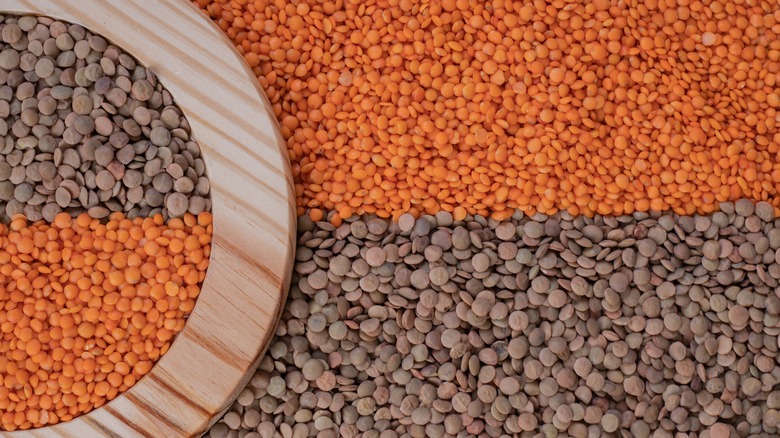The Nutritional Difference Between Beans And Lentils
The differences may not initially be quite so apparent, but lentils and beans actually have distinct nutritional benefits for the human body. Oftentimes in a culinary sense they are confused for one another and sometimes even substituted, but from a health standpoint just how different are they?
Beginning with the beans, according to Healthline, they are a very good source of multiple different nutrients and are on the cheaper side, making them one of the best bangs for your nutritional buck. Technically the classification "bean" is not necessarily taxonomic but more colloquial, referring to the seeds of certain leguminous plants that have pods. Specific amounts can vary depending on the type of bean, but on average 1 cup of beans will provide you with 15 grams of protein, 15 grams of fiber, and a good portion of your daily suggested value of minerals like iron, magnesium, folate, and others. With a very low relative calorie count, beans are some of the most nutrient-dense foods available.
How do lentils compare?
Lentils are also classified as legumes and are similarly high in protein and fiber, according to Medical News Today. They also can provide some of the same minerals, as they are notably high in potassium, folate, and selenium which are all minerals that maintain a healthy body and help prevent high blood sugar, prevent cancer, and aid in energy production.
The significant differences between lentils and beans are truthfully more aesthetic than they are nutritional. The amount of protein and fiber you can get from each of them by volume is comparable, per MasterClass, and they both boast high levels of minerals. Their size and shapes can vary quite a bit by type though. Generally, beans are larger, which can affect the cooking time.
Beans are also ever so slightly higher in carbs and produce more phytate and indigestible sugars, which does not mean much for their nutritional value, but means that lentils (which contain less phytate and sugars) won't give you quite as much flatulence.

